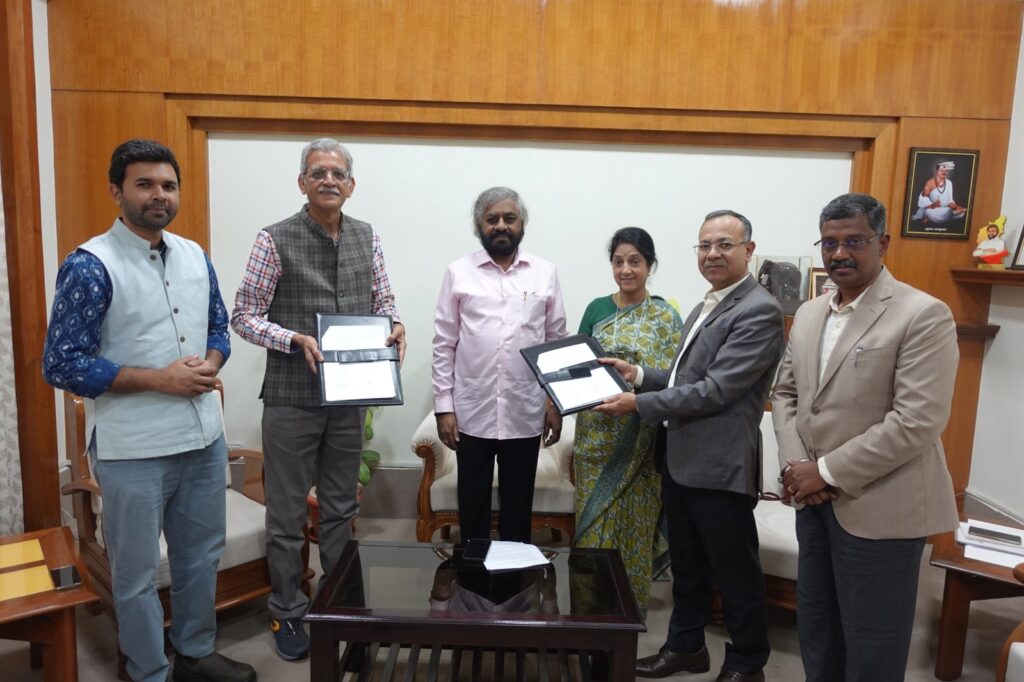
Karnataka Forest Minister, Eshwar Khandre is seen during the signing of Memorandum of Understanding
Karnataka Forest Department and IISc sign MoU for long-term elephant conservation
Bengaluru
In a significant step toward tackling human-elephant conflict and ensuring the long-term conservation of Asian elephants, the Karnataka Forest Department (KFD) and the Indian Institute of Science (IISc) have signed a five-year Memorandum of Understanding (MoU) for a project titled “Landscape-Level Management of the Asian Elephant in the Mysore Elephant Reserve (MER).”
With Karnataka hosting over 6,395 wild elephants—the largest population in India—the state’s ecologically sensitive zones, particularly around the MER and coffee-growing regions, are increasingly becoming conflict hotspots. Habitat fragmentation, encroaching development, and shifting land-use patterns have exacerbated tensions, leading to crop damage, loss of life, and retaliatory actions against elephants.
This ₹4.74 crore project, spanning from 2025 to 2029, aims to link cutting-edge ecological research with on-ground conservation strategies across 15 forest divisions. The initiative marks Karnataka’s first large-scale, multi-disciplinary approach to elephant conservation.
Key objectives include:
- Mapping corridors and evaluating movement barriers via satellite telemetry and GIS.
- Monitoring elephant health and demographics using non-invasive methods.
- Studying behavioural patterns and identifying high-conflict individuals.
- Developing acoustic deterrents based on vocalisation research.
- Predictive modelling to forecast conflict zones under changing land-use scenarios.
- Designing a Conflict Mitigation Toolbox (CMT) and 10-year Strategic Action Plan (SAP).
Research will be jointly conducted by IISc’s Centre for Ecological Sciences and partner institutions such as ANCF, FERAL, and NIAS. The project will also focus on training frontline staff and engaging local communities in participatory conservation.
Officials expect the project to produce detailed movement maps, introduce tools like soft-release protocols and zap collars, and support cost-effective solutions for farmers and coffee planters.
“This collaboration lays the groundwork for a more science-informed, humane, and proactive conservation model,” said forest officials. Regular biannual reviews and a real-time dashboard will track progress and ensure transparency.
For more Karnataka news developments click here
